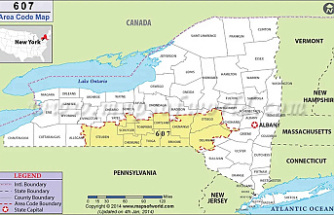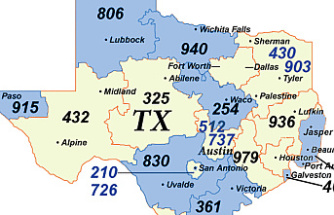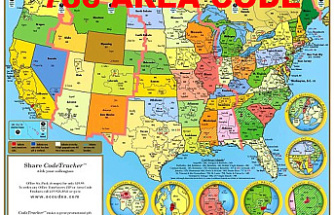Ottawa’s first comprehensive reform of corporate law in more than a decade will do little to prevent tax cheats and criminals from hiding their identities, say critics of a bill winding its way through parliament.
Foreigners are using Canadian corporations to “snow wash” illicit funds — as the Star revealed through the Panama Papers investigations — and they will have little impediment to continuing to move money anonymously even after Bill C-25 becomes law, financial crime experts say.
“The bill falls short of its potential to address the real risks of money laundering, terrorism financing and tax evasion,” said Denis Meunier, a former top official with the Canada Revenue Agency and FINTRAC, Ottawa’s anti-money laundering watchdog.
Meunier noted that an intergovernmental review last fall found Canada’s corporate transparency is non-compliant with international anti-money laundering and terrorism financing standards.
“Match up the assessments of the risk . . . . And then you see this bill, there’s a gap. For me, it’s stunning that the government hasn’t (done more),” said Meunier, a member of Transparency International Canada who shared his analysis with a parliamentary committee last week.
Bill C-25, which is expected to receive final reading next month, addresses several aspects of corporate law, but the one that’s most troubling for financial analysts and law enforcement is the partial ban on bearer shares.
Bearer shares are archaic financial instruments that play a big role in money laundering because they act like cash for criminals. Unlike normal stocks in a company, which are registered to their rightful owner, bearer shares belong to anyone who physically holds them. Like a cheque made out to “cash” the certificates, which can be worth millions, can be bought and sold without leaving a trace.
Under heavy international pressure, most of the world’s most notorious tax havens have done away with bearer shares. Canada lags other major nations by continuing to allow them.
But Bill C-25 bans only the issuance of new bearer shares, said Claire Woodside, director of Publish What You Pay (PWYP) Canada.
“What this bill doesn’t do is require individuals holding bearer shares to register those shares,” said Woodside. “This means that bearer shares being held in the hands of a criminal can still be traded as currency.”
In order to ferret out the bearer shares in circulation, PWYP and Transparency International Canada recommend the government require anyone with a bearer share who attempts to vote or collect a dividend to convert it into a registered share.
“It essentially removes the value of bearer shares because you’d have to register them to use them,” Woodside said.
Even if bearer shares were fully banned, this wouldn’t close the door for tax evaders, corrupt politicians and organized crime to continue to snow wash their money using Canadian companies, said Woodside.
“C-25 doesn’t really tackle the problem of secret companies . . . bearer shares are just the tip of the iceberg. There are many different ways that Canadian corporations can hide their ownership,” she said.
“The federal government has essentially accepted the risks posed by an opaque system on behalf of Canadians.”
Navdeep Bains, minister of Innovation, Science and Economic Development, told the House of Commons last October that Bill C-25’s reforms “would provide the foundation for a 21st-century marketplace. They will align Canada’s framework laws with best practices in jurisdictions around the world.”
This first legislative effort to address the abuse of corporate secrecy does nothing to reveal the real “beneficial” owners of federal corporations, says Brian Masse, an NDP MP who sits on the committee reviewing the bill.
“It’s a missed opportunity,” he said. “The message to the financial community is: ‘We’re taking a pass.’ ”
Masse said anyone who doesn’t understand the scale and urgency of combating tax evasion and money laundering “has been living in a cave.”
“I think we’re going to get called out by the international community for this,” he said. “There are glaring holes in corporate accountability and transparency.”
Last fall, the Financial Action Task Force (FATF) issued a country report on Canada and identified corporate anonymity as an impediment for law enforcement, which was were routinely unable to identify individuals behind “large-scale and sophisticated money laundering operations in Canada.”
“Law enforcement agencies do not investigate many cases in which legal entities or trusts played a prominent role or that involved complex corporate elements or foreign ownership or control aspects,” FATF found.
In an interview with the Star last November Finance Minister Bill Morneau said the federal government would lead the provinces, ensuring “that we are all living up to the highest standards of transparency and accountability (around) who is setting up these corporations.”
Morneau’s spokesperson, Dan Lauzon, said a working group of representatives from the federal government, the provinces and territories met last fall “to collaborate on transparency and beneficial ownership.”
Morneau made a commitment to end secretive corporate structures by collecting and sharing information about the beneficial owners of all companies at the meeting of G20 finance ministers last April.
But in the nine months since, the only legislative action has been Bill C-25, which doesn’t eliminate corporate anonymity.
“By getting this wrong, we can inflict so much damage on people and their investments. We’re encouraging crime and money laundering, which costs the public purse,” said Masse.
“Closing loopholes is free. It’ll actually bring in money through increased tax revenues.”
“There’s no logical argument for not moving on this.”
The Toronto Star and thestar.com, each property of Toronto Star Newspapers Limited, One Yonge Street, 4th Floor, Toronto, ON, M5E 1E6. You can unsubscribe at any time. Please contact us or see our privacy policy for more information.
Our editors found this article on this site using Google and regenerated it for our readers.












